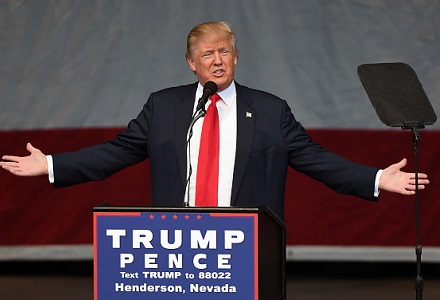
Read Professor Leighton Vaughan Williams' latest US Election thoughts.
To win the keys to the White House means winning 270 electoral votes. The winner of the Florida popular vote earns 29 electoral votes. It is the pivotal state which was so close between Al Gore and George W Bush in the 2000 US election that the US Supreme Court voted by 5 to 4, along Republican/Democrat lines, to stop the recount and hand the State’s electoral votes to Bush. It catapulted him into the White House by a sliver. If it had gone the other way, Gore would have won the Electoral College by a decisive margin. In 2004, Bush won the state by 5 per cent. Without Florida in Bush’s column, the Democratic candidate, this time John Kerry, would have been elected President. In 2008 Barack Obama won Florida for the Democrats, and the White House, and retained both in 2012. In neither case did he need Florida to win the bigger prize.
You might see a pattern emerging here. Without Florida, it is very, very difficult for a Republican to win enough electoral votes to win the White House. Put another way, the Sunshine State is pretty much a must-win state for a Republican candidate but not so for a Democrat (though it would come in mighty handy in a contest that is anywhere near close).
The current polling average puts Hillary Clinton about 2 per cent up in Florida, although the latest published poll gives Donald Trump a small lead. The average is about a couple of points short of her national polling average. The thing about Florida, though, is the diversity of its population, with one of the largest groups of Latino voters of any of the so-called battleground states as well as a large African-American population. A big worry at the moment for Clinton is the level of her support among white voters without college degrees. If that support deteriorates further, it could cost her dearly in the Midwest, perhaps in states like Michigan and Wisconsin, but certainly in Ohio. New Hampshire might even be on the table. With Florida in her column, however, that should still see her with enough votes in the Electoral College to secure the White House for the Democrats for a third successive time. This is not to say that Florida will definitely get her past the winning post. Trump’s best hope in the event he loses Florida is through Ohio, North Carolina and Nevada, according to the current polling. But the path is narrow.
More generally, Florida opens up many more paths for Trump to the required 270 votes.
So what are the possible scenarios? Well, Trump could win Florida and the White House. Or Clinton could win Florida and the White House. Or Clinton could lose Florida and win the White House. Or Trump could lose Florida and win the White House. In order of likelihood, based on current polling, Clinton taking both is favourite. She is also in a slightly stronger position currently in the national race than in the race to win Florida. It is also a reasonable possibility that Trump wins both. The only scenario that seems much less likely is that Trump wins the national race without the cushion of Florida’s 29 electoral votes.
This sets up an interesting strategic battle for the Florida electoral votes. For Trump it is all but a must-win state. His campaign will invest and focus heavily there. It also has a history of so-called voter suppression, most evidenced by voters battling long lines for hours to vote. Marco Rubio, who is defending his Senate seat, is also well ahead in the polling and has endorsed Trump for President. The Governor is a Republican. In boxing terms, a Democrat needs a knockout to win in the Sunshine State.
Trump is currently 13/5 to win the White House and 13/8 to win Florida. Given that a Trump national win will almost surely include Florida, and that you get a potential Clinton win covered also with Trump winning Florida, the 13/8 is really worth considering.
Follow Leighton on Twitter @leightonvw















